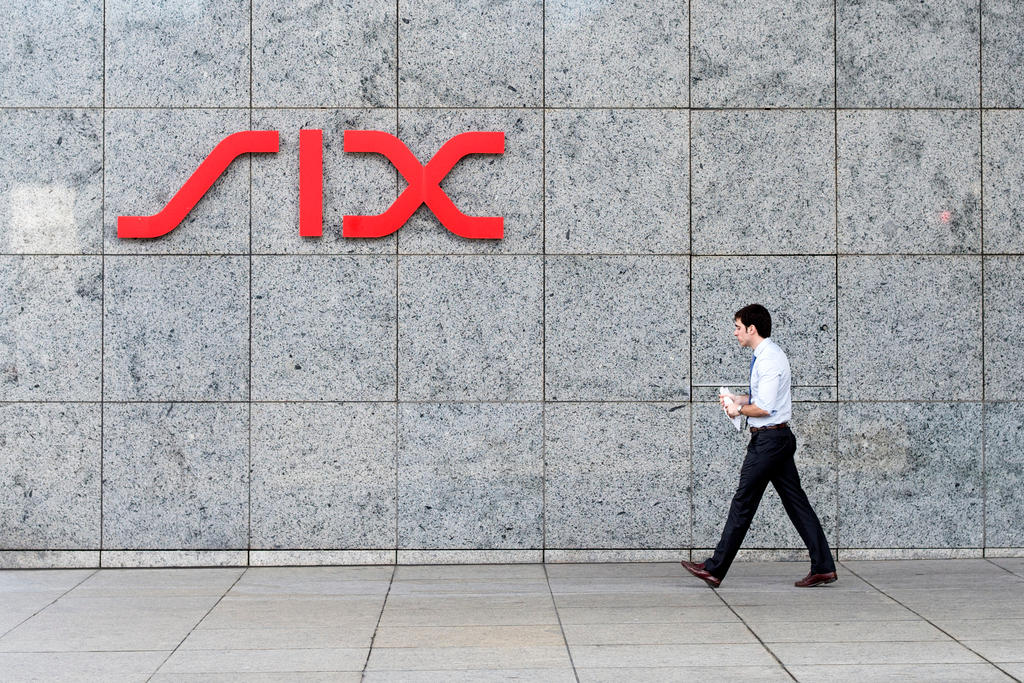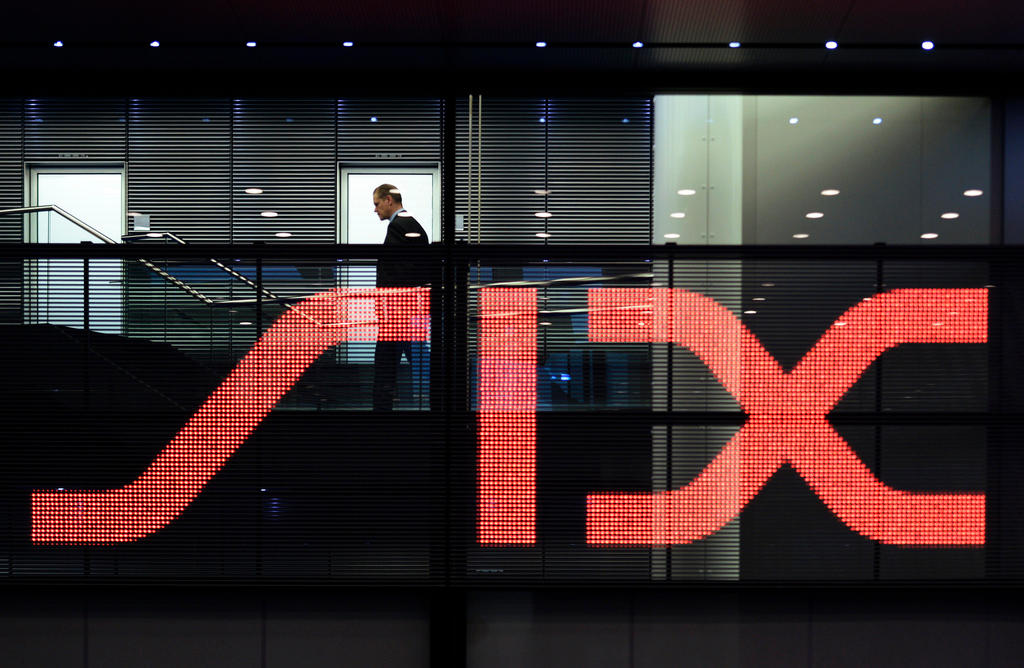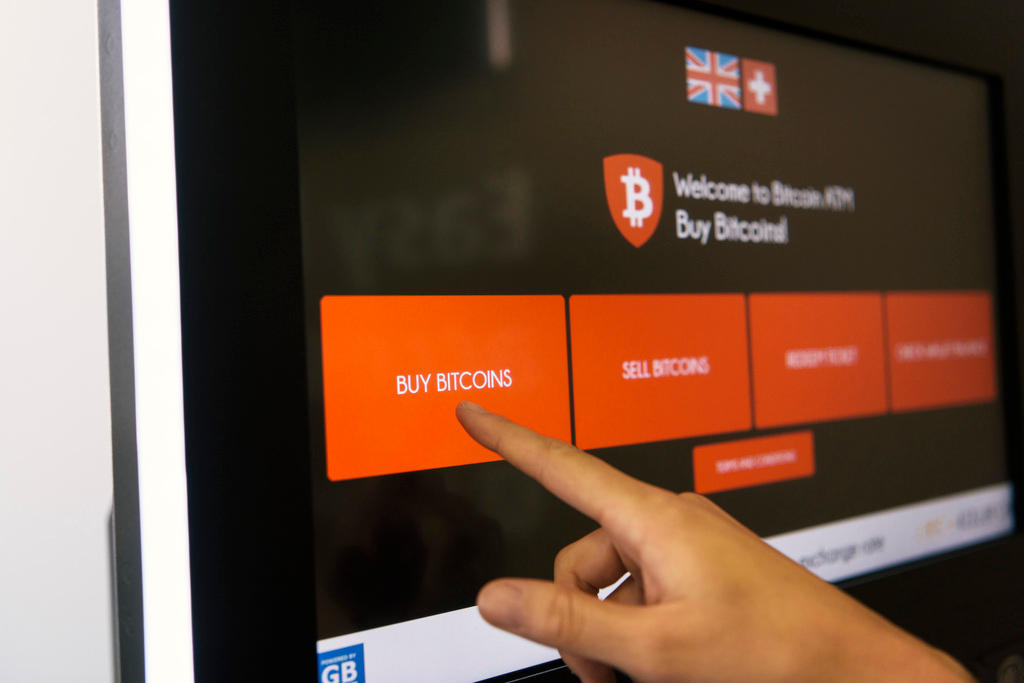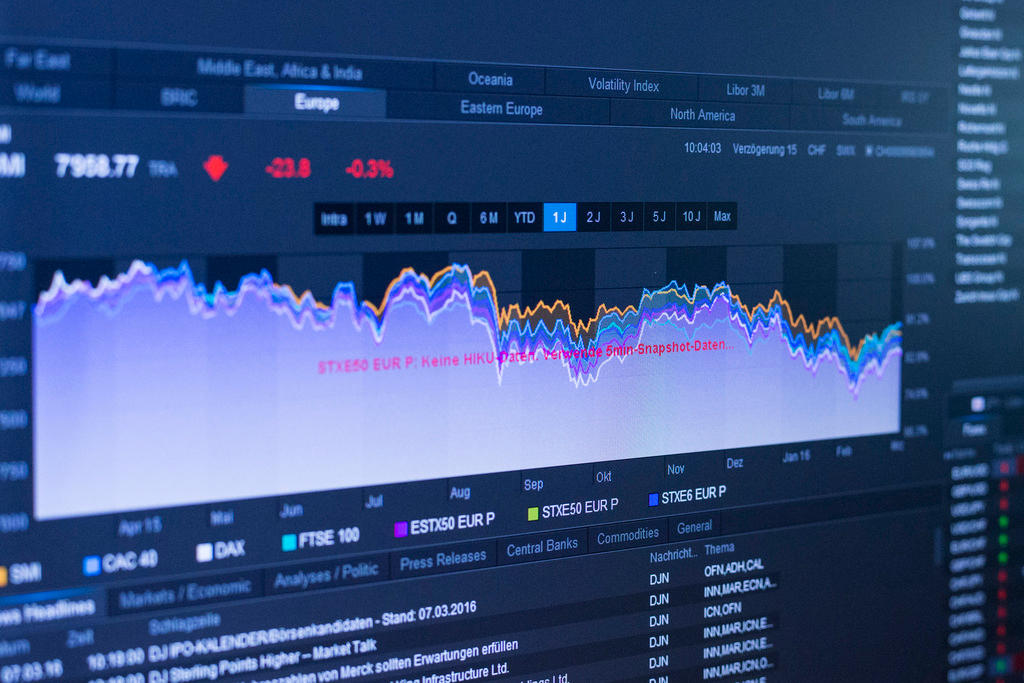Swiss blockchain exchange ‘on track’ despite ‘flexible’ timetable

The Swiss stock exchange’s new distributed ledger technology (DLT) trading platform may be arriving slightly later than anticipated. But operator SIX Group says the Swiss Digital exchange (SDX) will still be well placed to take advantage of a securities trading revolution.
SIX Group chairman Romeo Lacher says SDX will launch in the second half of this year. Project leader Thomas Zeeb suggests a slightly later date: the last quarter of 2019 or even early 2020.
When SIX announced the Swiss Digital Exchange (SDX) last July, it said “the first services will be rolled out in mid-2019External link.” It turns out that this timetable is “flexible”.
For one thing, SIX is waiting for the Swiss Financial Market Supervisory Authority (FINMAExternal link) to grant the new exchange a license. But on the other hand, no decision has yet been made on which DLT platform SDX will use – although the field has been narrowed down to two unnamed candidates.
swissinfo.ch fintech coverage
Fintech is changing the face of global finance. From bitcoin to blockchain, the Swiss financial centre is gearing up to the challenges and opportunities of the new wave of digital technology. The blockchain innovation is touching practically every industry, from logistics to energy, commodities trading and transport.
Speaking to a recent Worlds of ExChangeExternal link conference in Zurich, organised by the Crypto Valley Association, Zeeb insisted that the development of SDX remains “on track” despite the fluid launch date. But just as important as when, is how the exchange will operate.
SDX will begin offline tests for a new type of digital asset, called security tokens, with five banks in the third quarter of this year. These digital representations of company equity promise to be easier and cheaper to issue than traditional shares. This opens the field for smaller firms to raise capital by listing on exchanges.
Waiting for regulators
Security tokens could also represent ownership rights in other asset classes, such as art or real estate. This raises the possibility of a new generation of securities being traded around the world.
Whenever it does go live, SDX will initially focus on the new tokenised versions of more standard products, such as company shares. It will then have to wait until regulators clear the way for the transfer of existing traditional securities, such as shares, bonds and funds, onto the new platform.
The regulatory process started in earnest in December when the Swiss government proposed a wide ranging set of reforms to bring the financial centre into the blockchain age – including the securities trading sector.
Zeeb, who is Head of Securities and Exchanges at SIX, told the Worlds of ExChange summit that the duration of regulatory changes is hard to predict. But he said it could take until 2021 until the foundations are firmly laid.
He says the exchange will be “permissioned but not proprietary”. That suggests participation will be restricted to invite-only users. At the same time, Zeeb implies that no single entity will own the system or have exclusive control over it. This would provide peace of mind to participants that a dominant party cannot change the rules at a whim, or even shut the exchange down.
Rapid change forecast
In the meantime, other established global exchanges are also gearing up for the blockchain era. In addition, a number of new crypto exchanges are springing up around the world, offering agile, technology-savvy competition to the traditional behemoths.
Zeeb is convinced that the new system will bring profound changes. “I suspect that over the next 10 years we will see more change to the way capital markets function than we have done over the past 400 years,” he told the Worlds of ExChange conference.
But he is also equally convinced that the changes must be based on a solid set of rules. “Anyone who believes that governments, central banks and regulators are going to allow unfettered competition in something that is fundamentally and profoundly related to how economies function, is going to be sadly mistaken,” he warned.
For that reason, SDX wants to do more than just deliver a new platform. “We need to deliver an environment of rules, regulations and standards that everyone can adapt to, which provides legitimacy in the process of realising the benefits of the new asset classes.”
SIX Group has unveiled a studyExternal link that applies a crystal ball to how securities trading could be affected by DLT/blockchain. Perhaps unsurprisingly, it validates the strategy SIX is taking in creating the SDX exchange.
The report outlines several scenarios and rates their likelihood. The most likely scenario would play straight into the hands of SDX as investors keep faith in listed products (even new tokenised securities) on central exchanges.
The anticipated benefits are instantaneous trades, rather than the 2-3 day current process, by deleting the need for separate clearing and settlement. This would also relieve the need for intermediaries to put aside collateral to cover the risk of default during the settlement process.
A DLT system that puts traders in direct contact with buyers would also reduce costs by bypassing intermediaries, the paper says. The cost of issuing every CHF100 million of debt under the current system is gauged at CHF500,000.
Only a complete breakdown of public trust in governments and financial services systems would catapult cryptocurrencies and decentralised exchanges into widespread usage, the report adds. It predicts that the decentralised alternative financial system will remain niche a decade from now.

In compliance with the JTI standards
More: SWI swissinfo.ch certified by the Journalism Trust Initiative





You can find an overview of ongoing debates with our journalists here. Please join us!
If you want to start a conversation about a topic raised in this article or want to report factual errors, email us at english@swissinfo.ch.